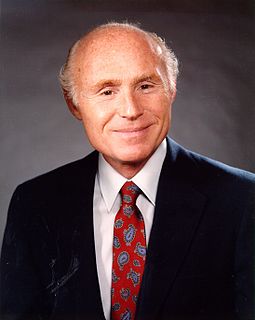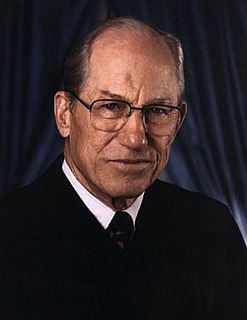A Quote by Mark Levin
To be true to its constitutional role, the Supreme Court should refuse to be drawn into making public policy, and it should strike down legislation only when a clear constitutional violation exists. When judicial activists resort to various inventions and theories to impose their personal views on privacy and liberty, they jeopardize the legitimacy of the judiciary as an institution and undermine the role of the other branches of government.
Quote Topics
Activists
Be True
Branches
Branches Of Government
Clear
Constitutional
Court
Down
Drawn
Exists
Government
Impose
Institution
Inventions
Jeopardize
Judicial
Judiciary
Legislation
Legitimacy
Liberty
Making
Only
Other
Personal
Personal Views
Policy
Privacy
Public
Public Policy
Refuse
Resort
Role
Should
Strike
Supreme
Supreme Court
Theories
True
Undermine
Various
Views
Violation
Related Quotes
The Supreme Court's most conservative Justices have presented themselves as great respecters of precedent and opponents of 'judicial activism' - of judges using the Constitution to strike down laws passed by the elected branches of government. If they are true to those principles, they should uphold rent control.
Judicial activists are nothing short of radicals in robes--contemptuous of the rule of law, subverting the Constitution at will, and using their public trust to impose their policy preferences on society. In fact, no radical political movement has been more effective in undermining our system of government than the judiciary. And with each Supreme Court term, we hold our collective breath hoping the justices will do no further damage, knowing full well they will disappoint. Such is the nature of judicial tyranny.
If Americans loved judicial activism, liberals wouldn't be lying about what it is. Judicial activism means making up constitutional rights in order to strike down laws the justices don't like based on their personal preferences. It's not judicial activism to strike down laws because they violate the Constitution.
The notion that the Supreme Court comes up with the ruling and that automatically subjects the two other branches to following it defies everything there is about the three equal branches of government. The Supreme Court is not the supreme branch. And for God's sake, it isn't the Supreme Being. It is the Supreme Court.
I do think the whole question of judicial accountability is a complicated one. On the one hand, you want to encourage judicial independence. And it's always, I think, problematic when an unpopular decision triggers a recall election. Because it sends a disempowering message to judges. On the other hand, it's the only way that voters have to rein in someone whose views are really so out of the mainstream of public opinion that they jeopardize the legitimacy of the judicial process.
The (Supreme Court) ruling that anyone who's arrested -- even accidentally -- can be strip-searched was decided five to four, with the votes for the searches coming from the Court's five conservatives. You know -- the 'defending personal liberty' guys. Which is weird because I'm not a constitutional scholar, but I'm willing to bet Big Government feels it's biggest when it's inside your anus.
The Court is most vulnerable and comes nearest to illegitimacy when it deals with judge-made constitutional law having little or no cognizable roots in the language or design of the Constitution.... There should be, therefore, great resistance to ... redefining the category of rights deemed to be fundamental. Otherwise, the Judiciary necessarily takes to itself further authority to govern the country without express constitutional authority.
RTE was set up by legislation as an instrument of public policy, and, as such is responsible to the government. The government have overall responsibility for its conduct, and especially the obligation to ensure that its programmes do not offend against the public interest or conflict with national policy as defined in legislation. To this extent the government rejected the view that RTE should be, either generally or in regard to its current affairs programmes, completely independent of government supervision.


































